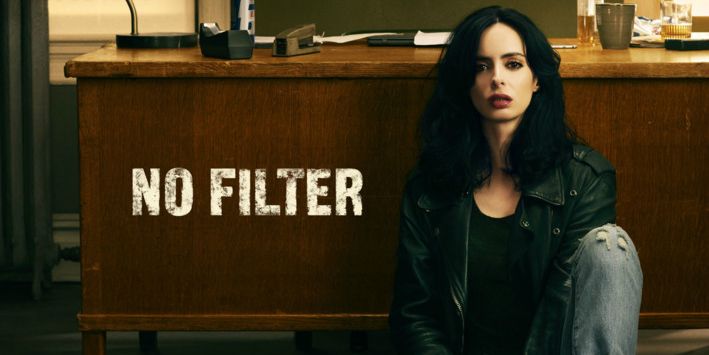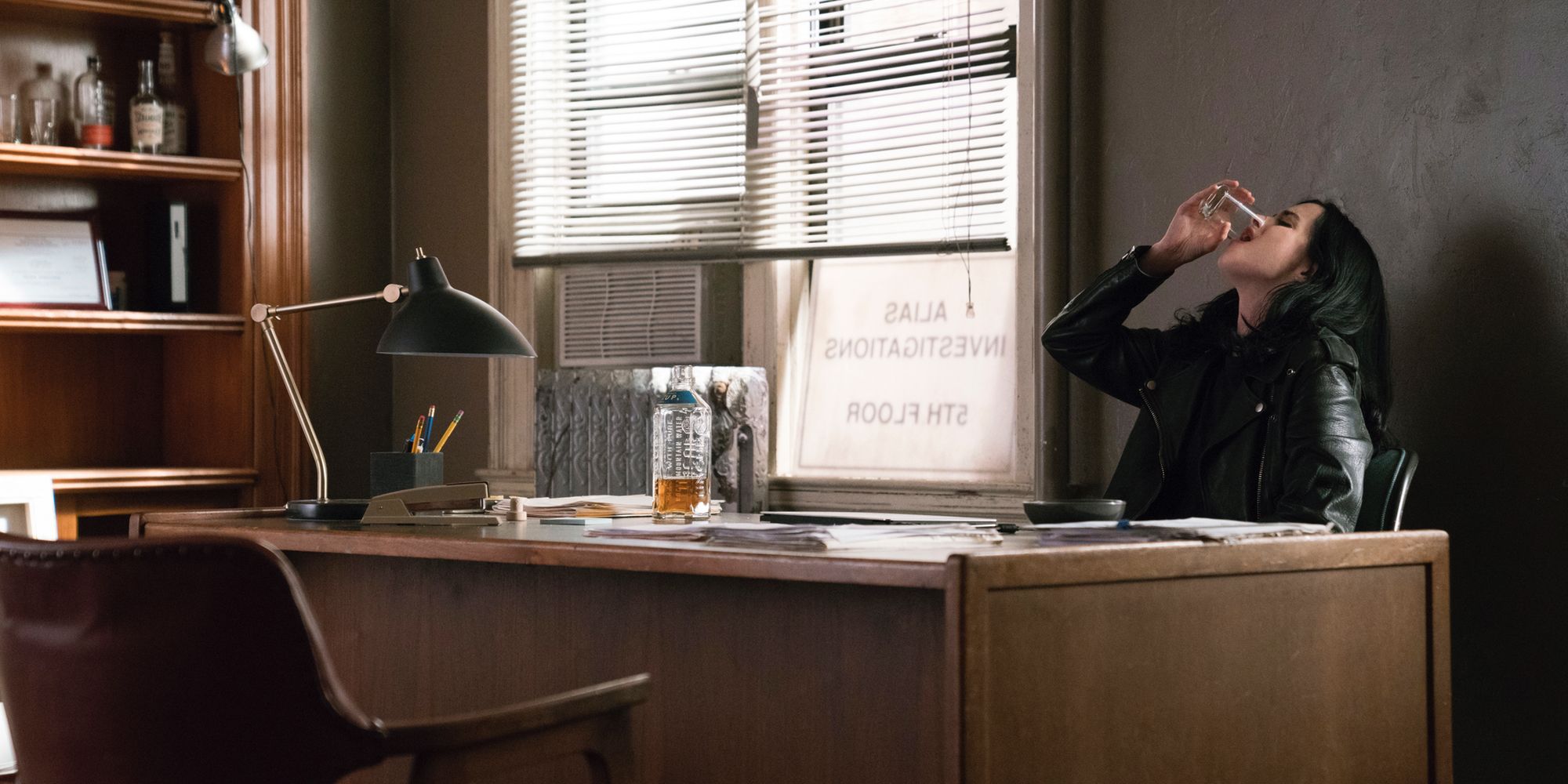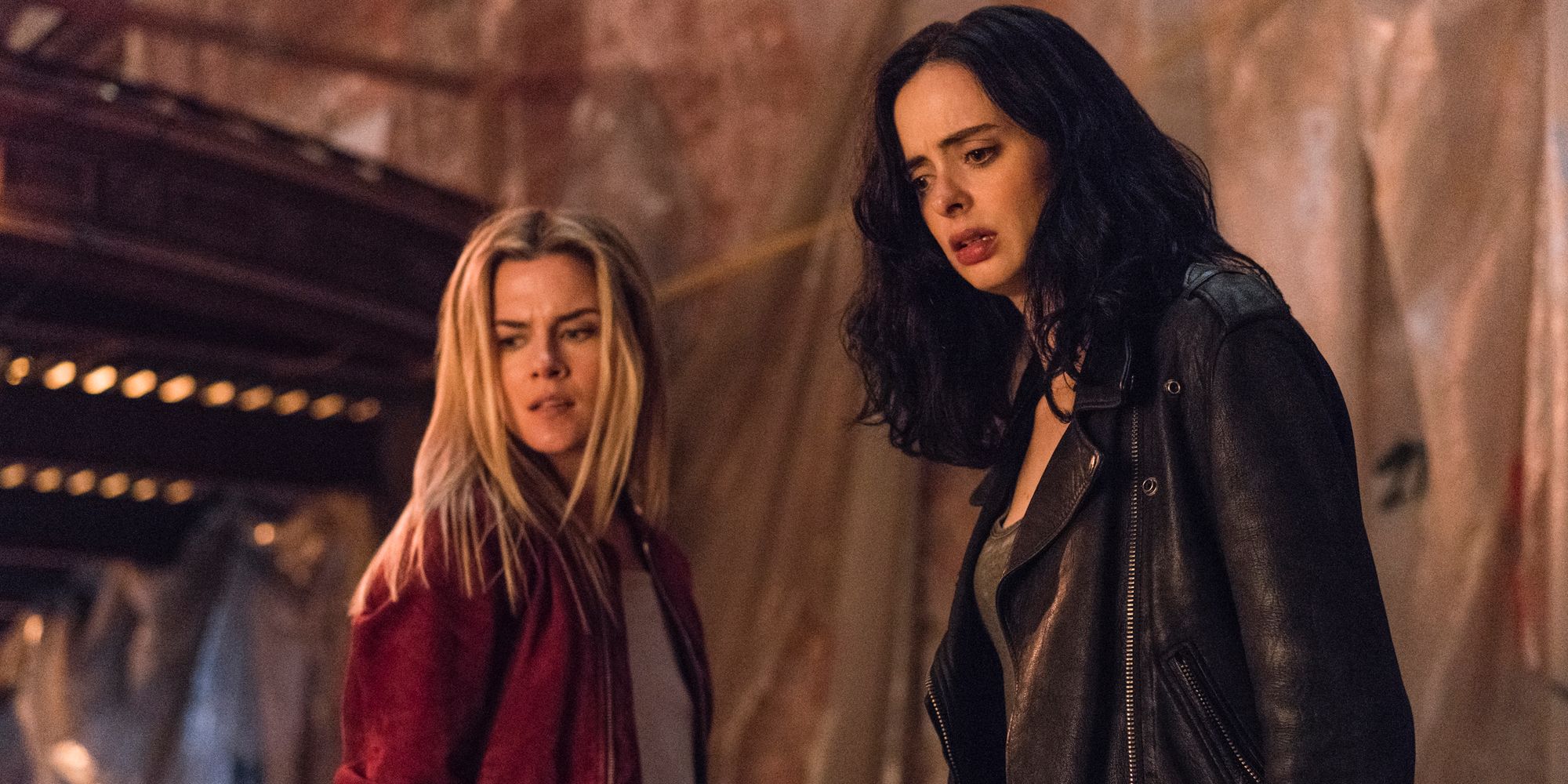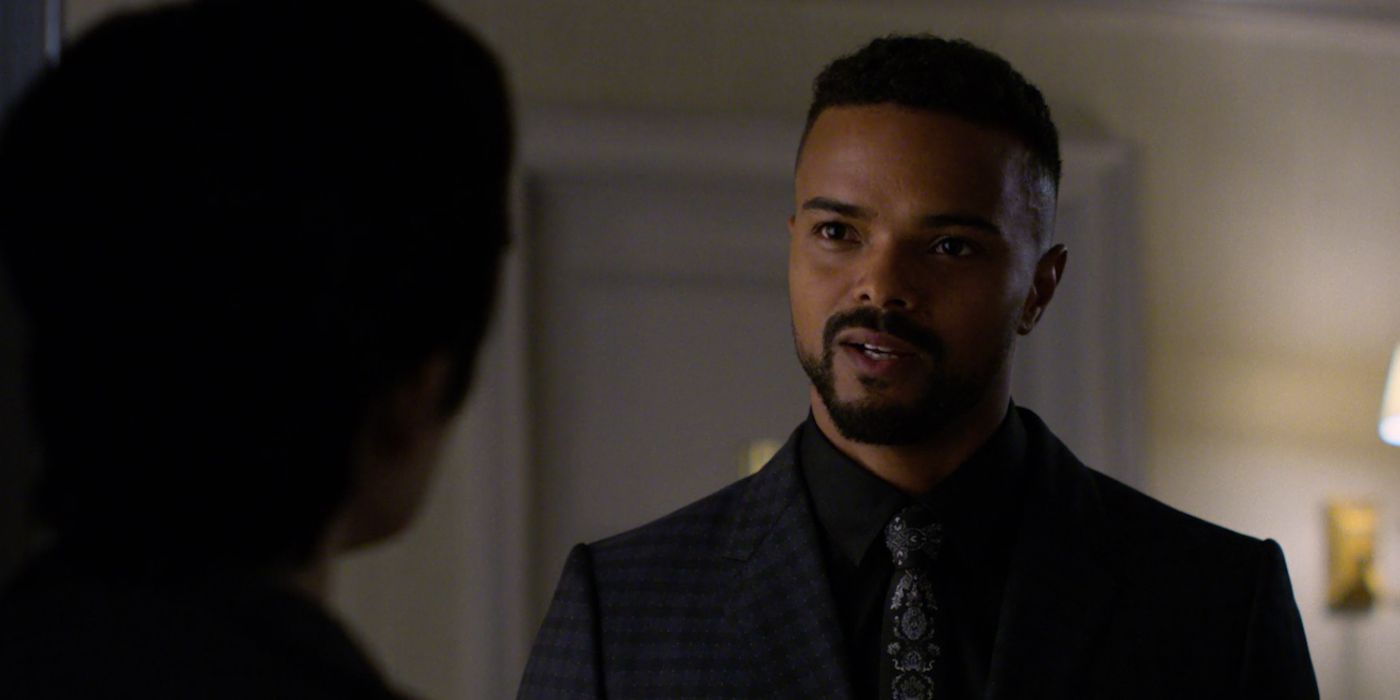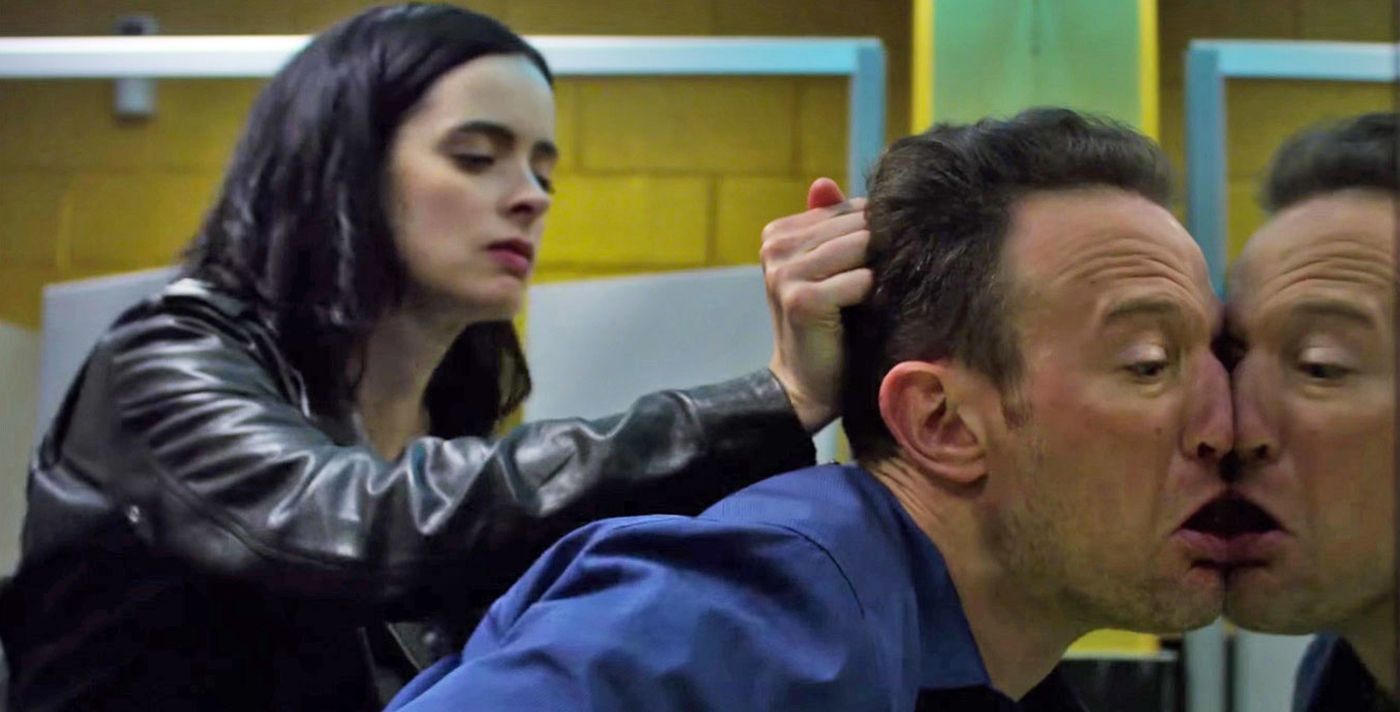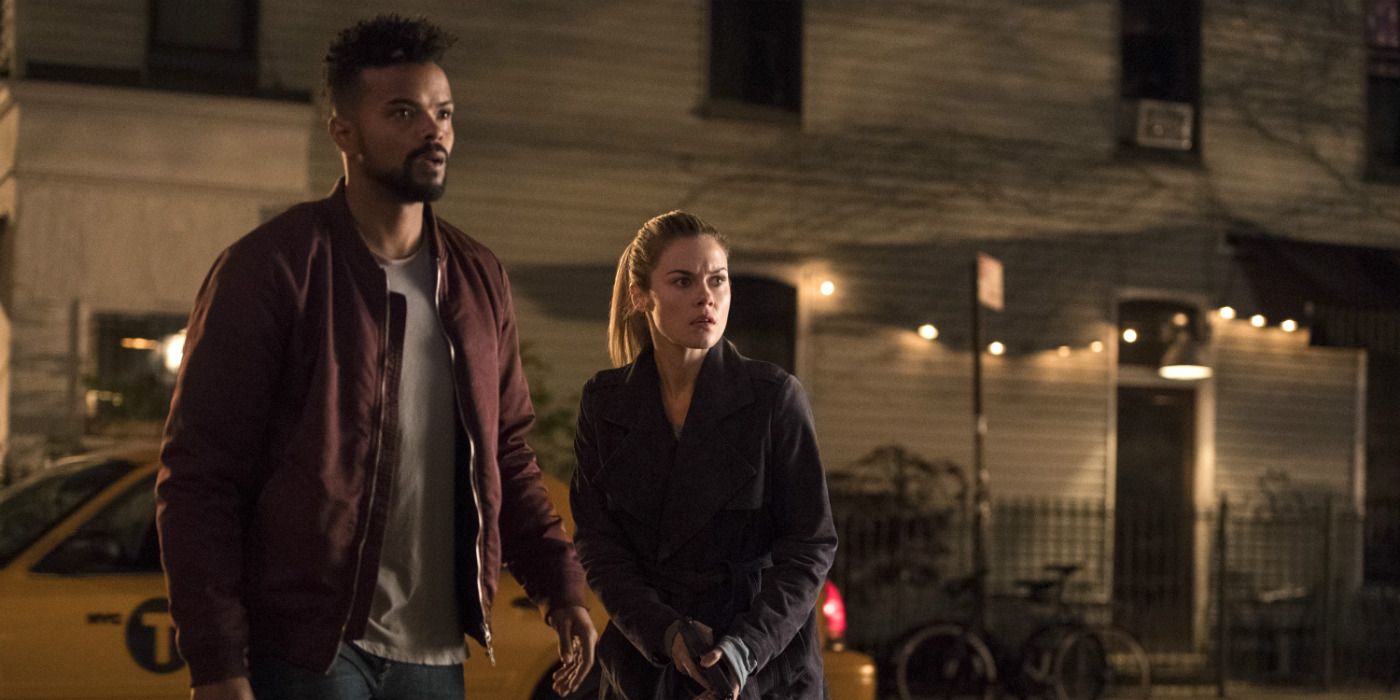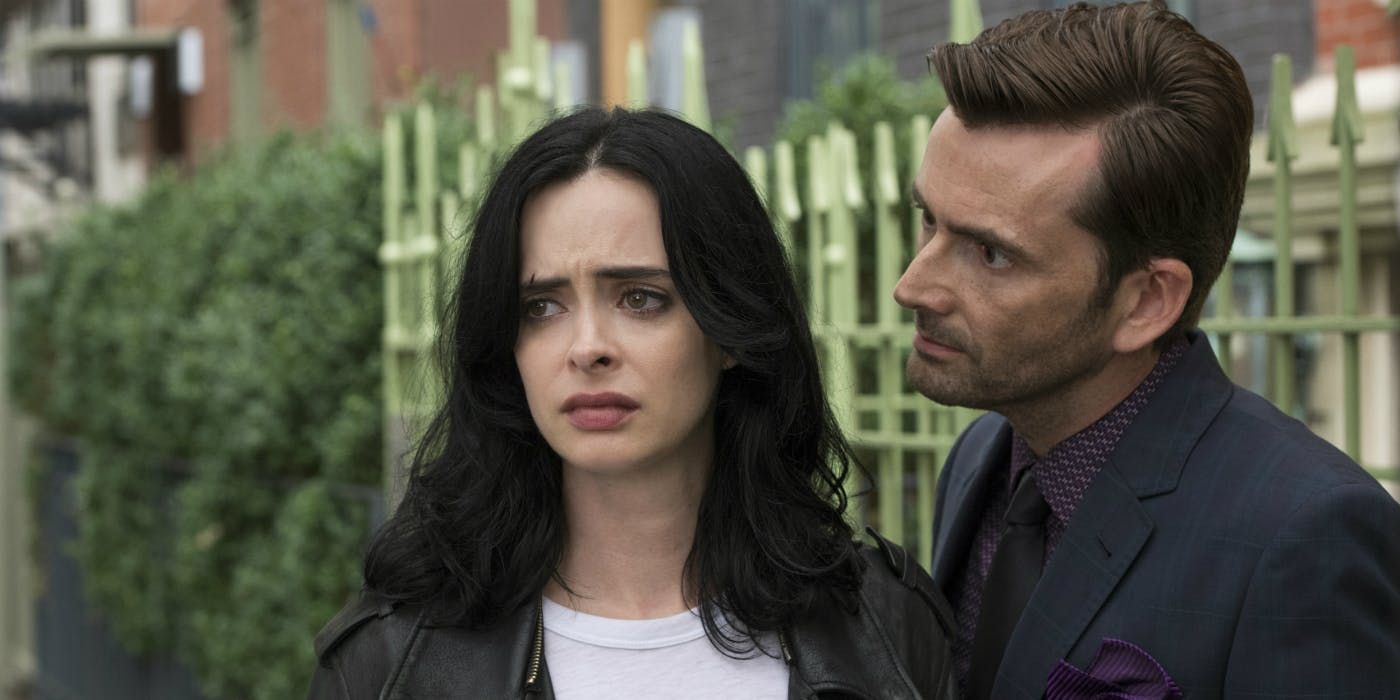Warning: SPOILERS ahead for Jessica Jones season 2
-
Kilgrave may be gone, but that doesn't mean that life is any less complicated in Jessica Jones season 2, which recently arrived on Netflix. Jessica (Krysten Ritter) finds herself facing ghosts from her past, dealing with fresh trouble in the present, and making difficult decisions about her future. Screen Rant spoke to Jessica Jones showrunner Melissa Rosenberg about what the characters have been through in this most recent season, and where they may find themselves when season 3 begins.
- This Page: Jessica, Malcolm & Jeri
Screen Rant: What are the favorite responses that you've seen from fans for this season?
Melissa Rosenberg: I'm loving them responding to the performances especially by Kristen and Janet [McTeer]... They're getting involved in the storytelling, getting sucked in little by little has been really great. People are taking the emotional ride with us, which is awesome. It's been great.
SR: One of the things that comes up in the series is the idea of prejudice towards superpowered people. I imagine it's quite difficult to navigate because superpowers don't exist in the real world and they are actually quite dangerous, as we see in this season. How did you go about kind of negotiating idea of bigotry towards people who can throw people across rooms?
MR: Well, it's a great metaphor for The Other. The fear of The Other sometimes is being misguided and it's a wonderful way to play that. It's to bring audience into that experience in a way that is accessible for them. That's really what we use it for.
Related: What to Expect in Jessica Jones Season 3
SR: Obviously, you've got an extra challenge with Jessica Jones, which is part of this massive shared universe. How much planning around other shows and the movies happens where you are planning a season?
MR: Very little, actually... They exist in with the same rules of the world but each show has their own DNA. We really have our own DNA and have experiences very separate from the rest of the world. If we start treading in the territory of one of the other shows is then our colleagues at Marvel say, "This other one did this kind of story line." They'll keep us within the boundaries of our show and we don't tread to the other.
SR: This season doesn't really have a villain. Was that a deliberate choice to kind of move away from the traditional superhero-super villain formula?
MR: Yes, very much so. Because we've done Kilgrave and that is a much more traditional structure... But we're never going to match that so let's do something entirely different. With the direction we wanted to take Jessica in, the journey we want to take her on really led itself to this kind of a structure.
SR: Jessica's personality is very abrasive, she's dealing with alcohol addiction, and those things that trademarks of the character. They're almost things that define her. Do you feel like it's difficult to move that character forward to a more healthy place?
MR: I think one must evolve the character or you lose the interest in a character who remains stagnant forever. We're always wanting to take her on new journey and new exploration and pull back the layers more and more and discover new things about her. But she still needs to be Jessica Jones... She's not suddenly going to be wearing dresses and singing church hymns.
SR: So we're not going to see a softer, more lovable Jessica in season 3?
MR: I'm not sure what is happening with season 3, I haven't gone there yet. The objective at the end of any season, of any show, is leave as many doors open as possible. When you do come back for another season, you have places to go. You may choose to or not choose to go there. But at least you have some doors open, otherwise you're starting from an absolutely blank page.
SR: Speaking of characters that evolved a lot this season, Malcolm has come a long way from kind of where we first knew him at the beginning of season 1.
MR: Malcolm's character arc for the series is really a coming of age story. I think he's evolving into being his own man. Part of that is to go out into the world and have different experiences and train with some different people and learn form different people. I think that's a good moment for him. A door was left open. We'll see whether or not he comes back into the fold.
Related: Did You Catch Jessica Jones Season 2's Stan Lee Cameo?
SR: Speaking of another supporting character who's had a really interesting journey this season, Jeri is dealing with ALS. How did you go about portraying that accurately, and showing how that character particularly, would deal with it?
MR: Season 2 is very much about her coming to terms with this. Accepting that it is now her new reality, it's her new normal. Where she goes with it from here is a big who knows. But the process of just being in denial and then having hope that there's just magical cure. All of that is a really interesting journey. Carrie-Anne Moss, she's an extraordinary actress. She is placed the subtlety of all that beautifully. [Jeri is] ending the season in her place of having both become harder, but also accepting the vulnerability that's there.
SR: Because the Marvel/Netflix shows are set in the same world and in the same city, do you try and match the tone of the other shows? Or make Jessica Jones unique as possible?
MR: Unique as possible. Yes. Again, each show has their own looks, their own style, their own rhythm, their own music and light. Every set has a palette. Everybody is very, very different. The fact that they're all from Marvel and they're all in Netflix is what bonds them together, that's kind of another -- they exist in the same city but other than, that they're really are their own stories.
SR: Are there any characters from the movies that if there were no restrictions, you'd like to bring into Jessica Jones? Like Jessica Jones teaming up with Captain America, for example?
MR: [laughs] I think Iron Man would be an interesting person for her.
SR: Maybe he can make her a suit so she could fly around being a PI.
MR: Yes. I don't know if she has any patience for this whole rich guy thing.
SR: But that might make it more entertaining to see them team up, to be honest.
MR: Yes. Now, actually Aquaman with Jason Momoa, I think she could probably dig on that guy.
SR: Yes. If there are really no restrictions then...
MR: Yes. Let's put her with Jason Momoa's Aquaman, that sounds like a good team up to me. They both are pretty hard drinkers.
Related: Jessica Jones Season 2 Connects to Captain America: Civil War
SR: One of the things that Jessica and Trish have in common is they both have the experience with sexual assault or rape. Was that part of the show based on stories that were already coming out in relation to the film industry? Or was it kind of an accident that ends up being extremely topical?
MR: It's coming actually because we'd already written and shot all the episodes before the Harvey Weinstein floodgates opened. It was a year before it even happened and we were writing that story. It's very common knowledge, it has always been common knowledge that that sort of thing goes on all the time. I think what the Harvey Weinstein incident did was too really put it out in the open. We're looking at in a harsh day of light going, "Wait a second, that is so wrong. That is wrong to the point that it's illegal." But there's been an acceptance level all these years. "Oh god, well, it's just stuff we have to put up with." Finally someone said, "Why?" and added, "No." [laughs]. In bringing it to Trish's character and having that little story art for her and having at her background is, it's really par for the course for so many actresses... As it turned out, we aired right around the time of this whole movement. It seems prescient but really it's not like this is new -- It's not like this is news to anybody that this sort of thing goes on.
SR: Watching it was like wow, this is very accidentally kind of extremely topical. Was it good to see all those stories coming out and see those floodgates open, especially given the plotline in the show?
MR: Just on a personal standpoint, it was really extraordinary to have the movement take a big step forward and be a very open conversation. That was personally really amazing for any women I think. But for this season, it was kind of amazing that we jumped into this conversation having already done all of our work [chuckles]. We just came out and lo and behold, it was very topical. The risk that you run there is it gets perceived as medicine and you stop seeing it as something that's actually entertaining. You'll say, for those people who are either tired of the meaty conversation or have issues with it, you might look at a show -- It's easy for us to get branded as medicine rather than entertainment.
SR: The episode where Kilgrave sort of returns goes to show that even if the bad guy gets locked up or killed, that trauma doesn't go away.
MR: Yes. I think that's the reality of it. I think it doesn't just go away. It becomes a part of you and you carry it the rest of your life. Whether it controlled you or not, or defines who you are as a different thing if you allow it to. Whether or not you allow it to define you or takes over that's up to the individual. I don't think you ever get to a place where you can pretend it didn't happen.
SR: What kind of thinking went into formulating Jessica's character as a response to trauma? It seems like it's formed a big part of her personality.
MR: What we see in season 2 is that a lot of her personality was formed before that even. She always had an edge to her and most of that had to do with losing her family but even before that she was always tough chic. That trauma, then followed by the trauma of Kilgrave, it informs who you are certainly. That's how we developed her character was really just following the reality of what a person like that with those experiences might do to a human being. That's how you begin to shape the character.
More: 25 Best Netflix Original TV Shows, Ranked
Jessica Jones season 2 is available on Netflix now.

